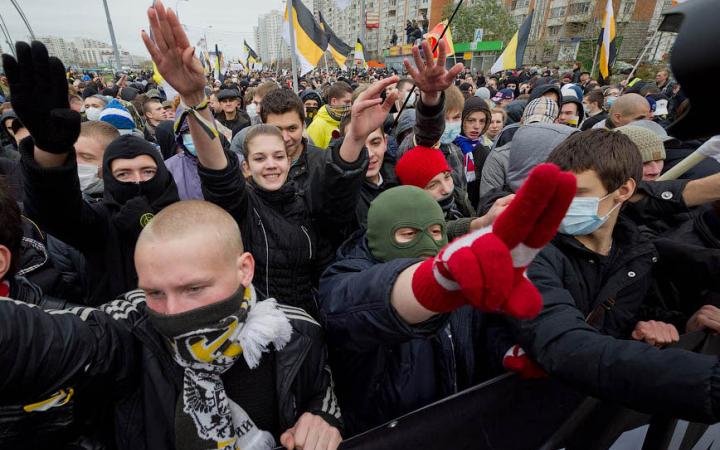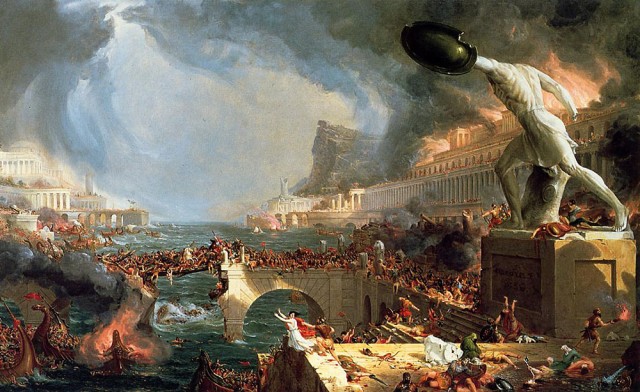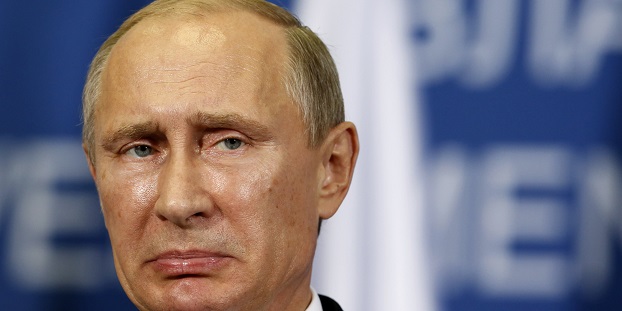Members of the Russian extreme right are taking part in the fighting in Ukraine on both sides, and they are returning from that conflict with increasingly radical notions of what they want and how they can use violence to take power, according to “Nezavisimaya gazeta.”
In a lead article today, the editors of the independent Moscow paper say that the Ukrainian war is having an enormous impact on Russian radical nationalists but add that the Russian authorities, besides being pleased that it has split the ranks of that trend, do not appear to be recognizing how dangerous this influence is.
The Moscow media has focused on the role that Ukrainian nationalists are playing, but the more Russian outlets talk about “’Ukrainian fascism,’ the less attention we are devoting to Russian ‘national-patriotic’ organizations” which are spouting ideas that are at least as dangerous overall and more dangerous to Russia itself.
Russians do not think they need to worry about this because they “are accustomed to live with the conviction that [their] country, having paid such a terrible price for a victory over fascism, never will have to face this ideology in their own multi-national home.” But recent events, such as the trial of Nikita Voronov of BORN, show no basis for that “conviction.”
Moreover, the paper continues, the appearance of radical nationalists in Ukraine should be a wake-up call to Russians, given that there are clear connections between “present-day Ukrainian and Russian nationalists.” Unfortunately, it says, “it is easier to condemn this phenomenon than to study it,” although a great deal is known.
Two weeks ago, the Russian authorities for the first time brought charges of mercenary activity against a Russian national socialist named Roman Zheleznov, code named Zukhel, who fought in the Azov Battalion in Ukraine against Russian forces. The Russian reportedly said that he would return to the Russian Federation, “in a tank, in a convoy or as a corpse.”
Rightwing Russian nationalists among the young overwhelmingly “now support the Ukrainians and not the [Moscow-backed] Donetsk Peoples Republic,” according to Denis Tyukin, a member of the political council of the Russian national socialist movement. Some of them were even involved in the Maidan earlier, he says.
Unlike “moderately oppositional conservatives” in Russia who call for Great Power patriotism based in Orthodoxy, these “national revolutionaries are “inclined to paganism and to the eye of using force to struggle for power,” the lead article says.
Up to now, the paper says, the Russian authorities have been pleased by this split: it weakens a sector of opinion that could be a problem for them. But they do not seem to recognize the real problems that “a real war” in a neighboring country in which Russians “ever more often are participating” can have, especially when those participants “begin to return home.”
But those in government offices who should be paying attention to this aren’t. If something isn’t being reported on Moscow television, then as far as they appear to be concerned, “it doesn’t exist.”





